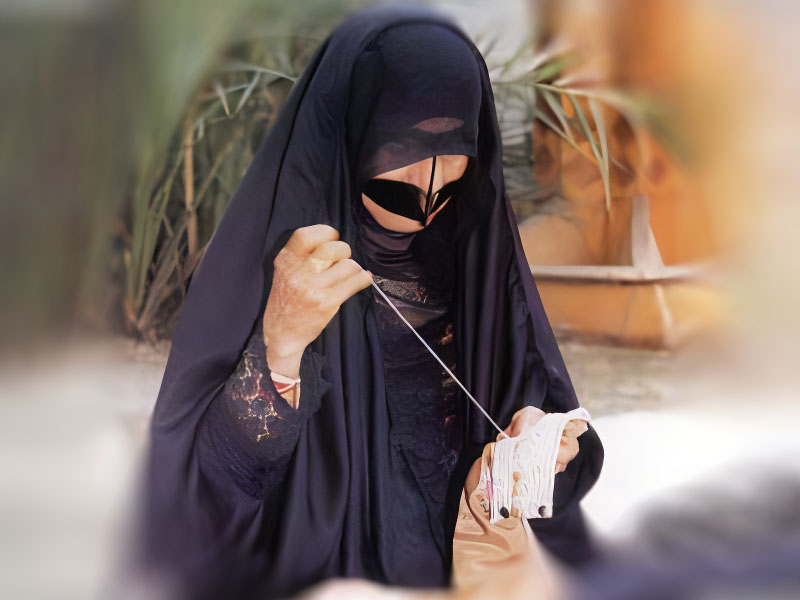Proverbs about Traditional Crafts
Issue 18

Ibrahim Abdul Hafith (Egypt)
Proverbs are an important component of folk literature; they reflect people’s traits, customs and beliefs, and describe many aspects of life, offering examples to follow, and contributing to society’s values and attitudes. Many proverbs reference traditional crafts, because craftspeople are an important part of society.
Many proverbs reference traditional crafts, because craftspeople are an important part of society.
This paper examines a number of proverbs about traditional crafts and industries. The researcher has selected barbers, bakers, carpenters, cooks and tailors in the belief that these are the crafts most often mentioned in traditional proverbs.
After referring to classic and modern dictionaries of proverbs, the researcher realized that there are few proverbs about Egypt’s more artistic crafts, such as engraving on copper, weaving decorative cloth for tent makers and gold-smithing. This is probably because the craftspeople who practice such artistic crafts used to do so in big cities, especially Cairo, while traditional culture in Egypt is closely related to agriculture and to the lives of peasants who have resided on the banks of the Nile and its Delta for thousands of years.
Many proverbs emphasize the importance of work in general, encouraging people to master crafts as early as possible, and to work hard to make a living; such proverbs are not the main focus of this paper.
It is important to note that proverbs passed through different phases before they took the form they have today.
Scholars agree that a proverb is created by an individual at a certain time in a certain place. When other people repeat the proverb, it goes through a period where it morphs before it attains the fixed form accepted by all members of a society.
Proverbs are of immeasurable importance. They are closely related to human life in all of its simplicity and complexity. They shape people’s behavior, describe life’s problems and challenges as reflected in people’s good and bad behavior, and serve as a record of daily life.
Proverbs have a humor and lightness that allows them to play a major role in people’s daily lives; proverbs are interrelated with lives’ facts and realities. Proverbs perform a literary rhetorical function by employing figures of speech such as metaphors, puns, allusions and irony, and this makes proverbs interesting and entertaining.
Proverbs can be considered a major source of tradition, because they contribute to the creation and enhancement of ethics and values such as virtue, honesty, generosity and neighborliness. They shape relationships among individuals and between people and nature.


































































